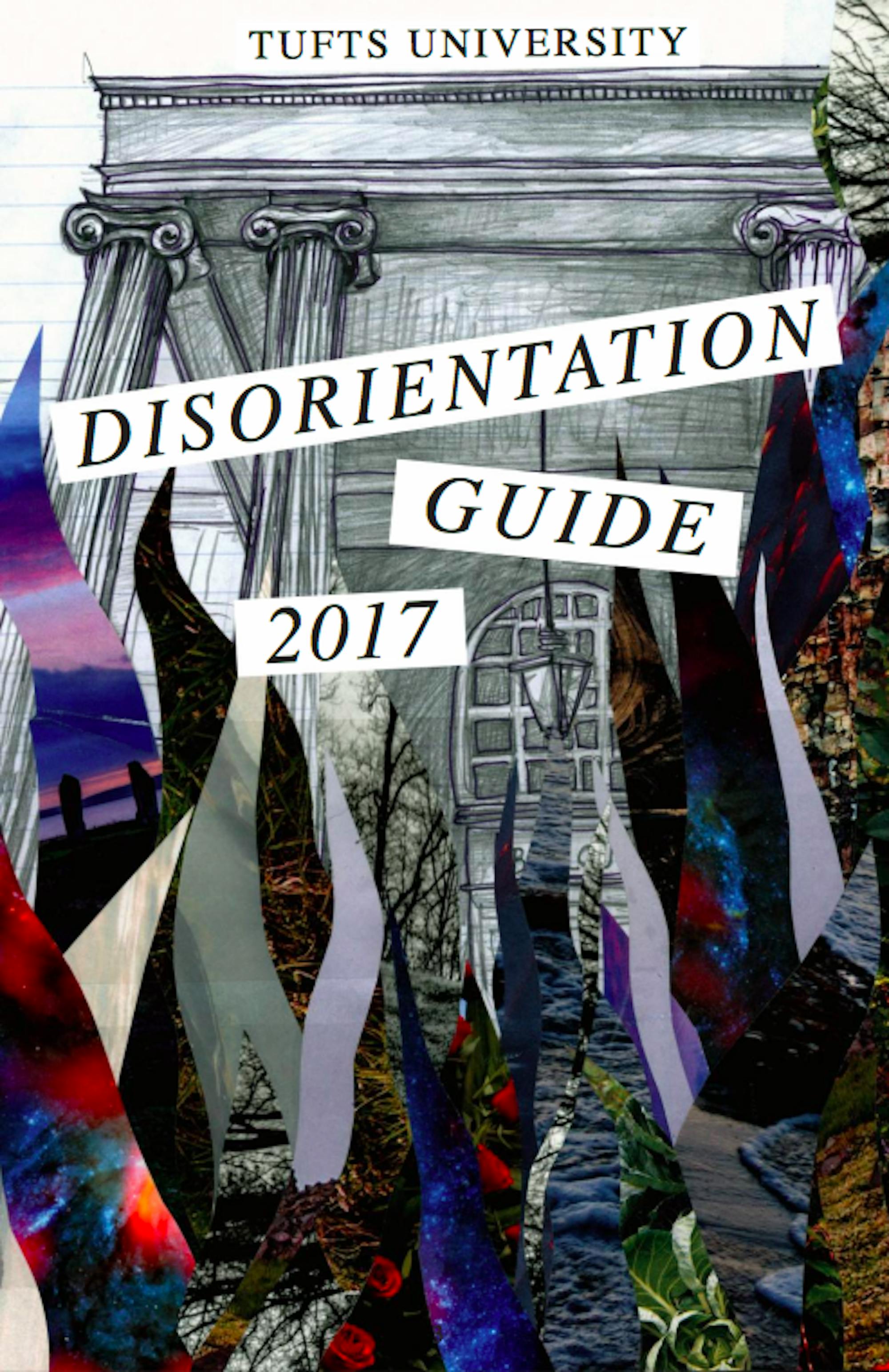The Tufts Disorientation Guide for this year was removed from the official Tufts University Class of 2020 and 2021 Facebook pages on Sunday, Sept. 3 by Communications and the Office of the Dean of Student Affairs, according to Mickey Toogood,a communications and multimedia specialist at the dean's office.
The Disorientation Guide is a document anonymously authored by a group of Tufts students that includes “institutional knowledge, words of encouragement, and narratives that [students] will not hear from the Tufts Administration during O-week,” according to the guide.
The document includes articles and pieces covering a wide variety of topics, including “Radical Histories of Tufts," “Where to begin? Being Black and queer on campus…” and “Studying Abroad and Mental Illness."
The guide is especially aimed at incoming first-years and students from minority groups that may otherwise be overlooked by the Tufts administration and student body, according to a source involved in the production and distribution of the guide, who spoke on the condition of anonymity to avoid backlash from students and administration.
“[It] is a collection of narratives, resources and histories that Tufts would not otherwise give to first-year students. A lot of it is counter narratives, so voices of students that are not default Tufts students," the source said. "It was a really helpful resource for me when I was a first-year and I want it to remain that for other people."
According to Nicole Joseph, a senior who has worked on the Disorientation Guide in previous years, this guide helps students feel as though they belong on campus.
“We just know that a lot of us have experiences that the school does not talk about, and [we] want to make sure that people get to know about those and don’t feel alone at the school," Joseph said.
Joseph explained that she does not believe there are enough resources for minorities provided by Tufts, which creates a need for publications like this.
“The school … doesn’t necessarily have a focus on how people of different marginalized identities can survive at Tufts, so I think those were the kind of resources we want to put in whether [it’s] financial aid or how to navigate the administration,” Joseph said.
According to Patrick Collins, the executive director of public relations at Tufts University, the Disorientation Guide was removed after the administration received “a number of student complaints” regarding the document.
"The guide ran counter to the spirit of orientation’s mission," he said. "On official university Facebook pages and groups, which the class groups are, we always have reserved the right to remove unauthorized content."
The university has the right to determine what is appropriate to share through official communication channels such as the Facebook class pages, according to Toogood.
“In general, the University is loathe to restrict social media posts," he told the Daily in an email. "When it does occur, removal of the unauthorized content is often prompted by complaints from students, but we also may hear from within the Tufts community that a post is somehow in conflict with Tufts community standards, in violation of copyright, or incompatible with the intended mission of a page or group."
According to Joseph, the guide is posted on official Facebook class pages every year.
Toogood noted the guide was removed from official Facebook class pages in 2015 as well under very similar circumstances when it was brought to the administration’s attention.
However, students involved with the guide did not agree with the judgment and justification of the Office of the Dean of Student Affairs.
“One of the reasons why this guide is published is because the voices that are represented in it are not ones that the administration tries to lift up, so I guess this is just another very clear example of them controlling the narrative of who’s on campus and what people are experiencing,” Joseph said, referring to it as a “bad use of their power."
The anonymous source agreed as well, saying the guide was removed due to the fact that the administration was threatened by the information in the document.
The source stated that, although the administration has the power to censor these publications, they believe it is the responsibility of students to actively create change on campus.
“I understand that Tufts is a private institution. They can do this kind of thing, but I don’t think that means they ought to," they said. "[The guide shows] to [the] first-years that Tufts is not a perfect place ... Tufts exists within other systems of power ... so, as students, it is our responsibility within Tufts to not be complacent.”
Tufts removes Disorientation Guide from Facebook class pages

The cover of the Tufts Disorientation Guide 2017 issue, which was taken down from multiple Tufts class Facebook pages by the administration. The content is said to reflect a more negative image of Tufts than typical first-year material.





